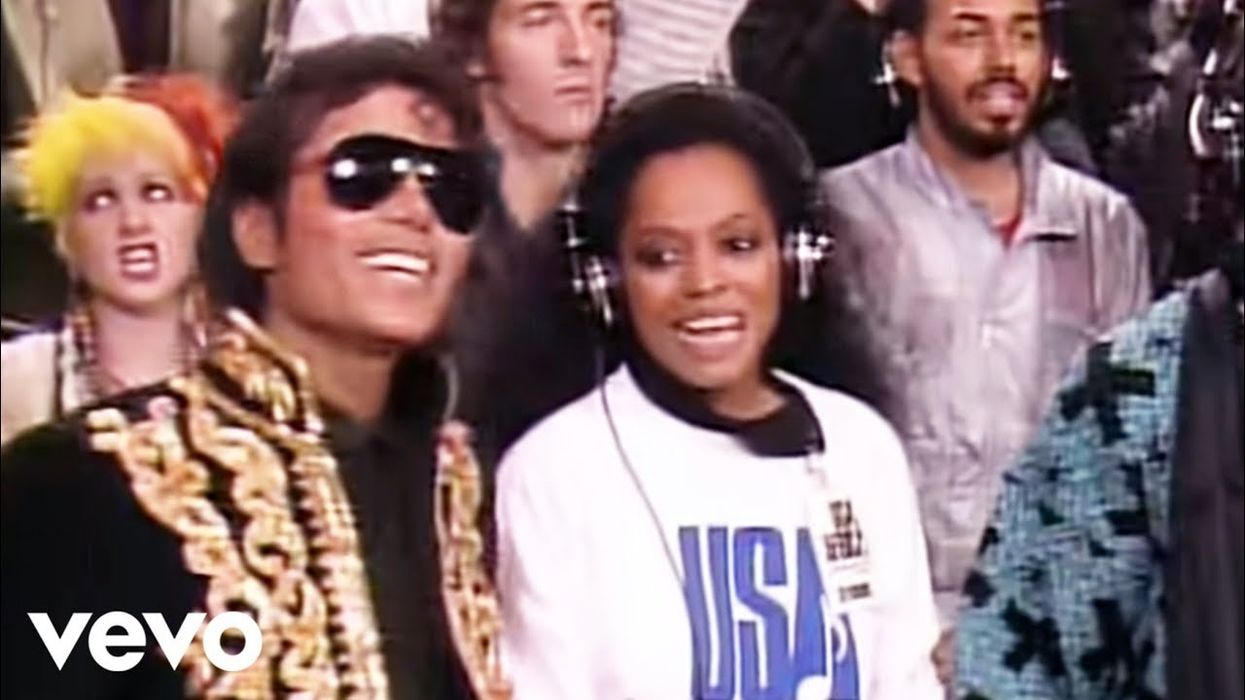Nevins is a co-founder of the Bridge Alliance, a coalition of almost 100 organizations seeking to strengthen democracy. (The Bridge Alliance Education Fund is a funder of The Fulcrum.)
It started with the #Weaving Community Zoom gathering of leadership partners working at a blistering pace to maximize our service to neighbors and actions in this most challenging time for all of us.
That same evening, I was moved to tears listening to the prayers of Bishop T.D. Jakes during "The Call to Unite," a 24-hour global livestream event. He prayed for all of us: the poor and the privileged, impoverished souls and those who have no compassion.
It is so easy to be swept away with the desire for "The Great Reset," as David Brooks had so eloquently expressed in his New York Times column that same day — a reset of our society based on compassionate listening, on core values that embrace ideas of caring, on a declaration of interdependence. I was among those swept away.
Yes, we all want to "Imagine"as John Lennon did almost 50 years ago. We want to imagine what can emerge from this moment is a new and better normal.
But it's fair to wonder if we are merely the dreamers that Lennon sang to, "hoping someday you'll join us." While reflecting, and feeling deeply connected to my fellow brothers and sisters, I can't help but wonder if there is a naivete surrounding our words of coming together.
My powerful emotions of hope are quickly brought back to the reality of a divided country as I turn on the news and interact with friends who are in a totally different place — choosing not to imagine anything new or different. They benefit from and prefer the "old normal" over some unknown future.
Are we deluding ourselves to think that the coronavirus pandemic will become a time for us to truly come together as a nation? We've seen this before. We felt it in 1969 at Woodstock, the pop culture music event of the decade — if not for all time — when hundreds of thousands of us celebrated love, peace and happiness. And we felt it in 1985, when the country banded together and sang "We Are the World" to fight famine in Africa.
Those lyrics from 35 years ago resonate for our new moment of crisis: "There comes a time / when we heed a certain call, / when the world must come together as one. / There are people dying / oh, and it's time to lend a hand to life / — the greatest gift of all."
Were we as naive then as we are today? And if not how can today be different?
That first Saturday of this month was a beautiful day here in South Florida. Out on the golf course, I could see my doubts playing out before my eyes. My more progressive friends wearing their face masks were carefully practicing social distancing. But my more conservative friends acted as if life was totally normal, caring little about the risks of close contact, ignoring the guidelines and verbalizing their feeling that this is much ado about nothing.
And so while uplifted by the preaching of unity, of a day ahead in which we are together as one, reality tells me this is just half the story. It is not the story of mainstream America I see on TV, in the news or in my life. Nor is it what speaks to the complete truth of what is happening.
We speak of listening first, but are we really listening to what many Americans are saying and feeling? Are we just preaching to the choir to make ourselves feel better?
Last month the Times columnist Thomas L. Friedman lamented the country is "locked in a polarized, binary argument about lives versus livelihoods." We are debating the merits of healthy bodies and souls versus the health of our economy — when both are imperative. We are talking past each other or, even worse, we are not talking at all even as Covid-19 spreads among us.
If we can't come together during a pandemic what does that say about the society that we live in, about who we are as a people? If we can't "harmonize our need to protect ourselves from the coronavirus and our need to get back to work," as Friedman neatly summarized the challenge, how will we ever become the sharing, caring and pluralistic society so many friends and colleagues speak about as they labor to bridge our social and political differences?
I am deeply conflicted, as perhaps our country is.
On an emotional level I have been so moved to be part of all the recent Zoom calls, webinars and media events seeking to bring us together.
But I need — and our country needs — more. We need a realistic plan for turning these beautiful ideas into something more tangible. It needs to somehow get us beyond preaching to the choir about unity, something that simply does not resonate with 45 percent of our fellow citizens.
So often today we praise and give honor to the essential workers who have become heroes to us all. They are going about their lives without the luxury of thinking about a new normal or pontificating about a "great reset."
After walking down many roads these last 50 years, I am still asking "How many seas must the white dove sail before she sleeps in the sand?"
I so want to believe that "All You Need is Love," but I cannot help but wonder if we are just "Blowin' in the Wind." And if we are, may we find the answers there.




















